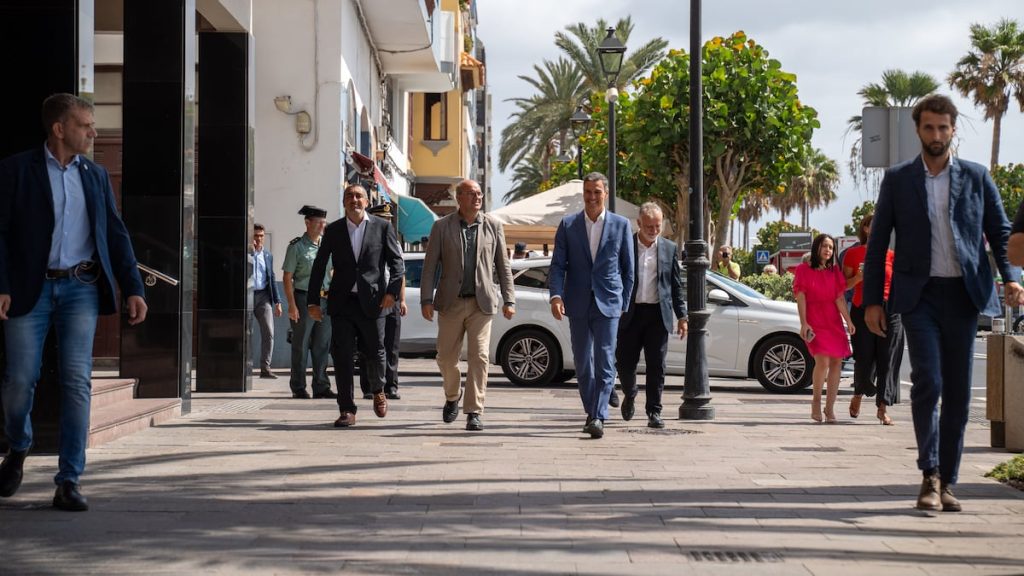Salvador Illa will be Pedro Sánchez’s safe conduct in a semester start full of mines. The burial of the procés is the calling card with which the President of the Government faces a new season in La Moncloa with the 2025 Budgets up in the air and multiple fronts to address. Sánchez will test his many political lives in a fall with ambushes around every corner, in which he trusts that society will recognize the pacification of Catalonia and its return to institutional normality in the medium term. Another matter will be the suspicions that the singular financing, agreed with ERC, raises in the rest of the country. The latest high-risk bet of Sánchez, which Esquerra and key Socialists like Josep Borrell consider an “economic concert” while Vice President and Minister of Finance, María Jesús Montero, denies it and it remains to be seen what will come of it, has been the pill that the PSOE has had to swallow in silence for a month. In exchange, a tangible success: the investiture of the first non-independentist president since 2010.
The return of the Spanish flag to the Palau de la Generalitat, alongside the senyera and the EU flag, in the meeting Illa held on Friday with the mayor of Barcelona, Jaume Collboni, also from the PSC, is more than a declaration of intentions. Illa, with each decision he makes, will be a message in itself that Sánchez will export as an example of new politics. The priority of the Catalan government will be the basics, that is, the improvement of healthcare, education, social services, and infrastructure, and not the castles in the air of the procés. “Illa’s presidency is for us a key factor of legitimacy. We have gone from 2017, with the risk of the bankruptcy of Spain, to 2024 with a minister of the Government who has become president with the vote in favor of an independentist group like ERC,” summarizes a high-ranking official at La Moncloa.
The new president, who at his inauguration swore to the Constitution and pledged to “govern for all Catalans,” will persist with gestures of détente. On Thursday, he will meet with Felipe VI in Barcelona at the welcoming event for the America’s Cup sailing race. A gesture to reconcile the Generalitat with the Royal Palace. With an uncertain majority in Congress and the ongoing leadership struggles within ERC and Junts, Sánchez will champion the positive economy and the return of order to Catalonia, with Illa as his standard bearer. The breakdown of the bloc politics between the independence movement and constitutionalists has allowed for a shift in dynamics that heavyweight members of the Government like the Minister of the Presidency and Justice, Félix Bolaños, have celebrated as “the most important news in the last decade”. Catalan politics returns to the traditional left-right divide, leaving behind the identity framework in which the PP thrives and the socialists struggle.
The PSOE and ERC have until the first half of 2025 to finalize the financing for Catalonia, a timeframe in Spanish politics that equates to light-years. The necessary modification of the LOFCA, the Law of Financing of the Autonomous Communities, does not have the necessary votes in Congress. The government has started educating the Socialist barons were missing in the face of widespread concern that the agreement might penalize the other 14 common regime communities. The agreement establishes that the Catalan Tax Agency, namely the Generalitat, would be responsible for managing, collecting, liquidating, and inspecting all taxes. The “Catalan contribution to the state finances” would be based on the “cost of services” that the central government provides to Catalonia plus a portion for “solidarity” with other regions. The solidarity would be “limited by the principle of ordinality” – meaning that if Catalonia is the third-largest contributor, it should also receive the third-highest investment per capita – a condition unacceptable not only for the president of Castilla-La Mancha, Emiliano García-Page, a thorn in the side of the Sanchismo within the PSOE, but also for the Asturian Adrián Barbón.
Montero will have to navigate this thorny issue, with an outdated system of regional financing that has been in place for six years. While finding a way out of the labyrinth, the government must address other pressing issues. The Cabinet will resume its activities on Tuesday, with no major subjects on the agenda, except for the political backdrop. Sánchez’s tour of Mauritania, Senegal, and Gambia will take center stage. Mauritania, where the Prime Minister returns six months after promising a €500 million injection with the President of the European Commission, Ursula von der Leyen, has become the main launching point for the boats reaching the Canary Islands. The irregular migrant arrivals have increased by 66% so far this year, with more than 31,155 people arriving by August 15th, mostly concentrated in the Canary Islands. This issue, along with the approval of the spending ceiling, presents significant challenges for the Government.















